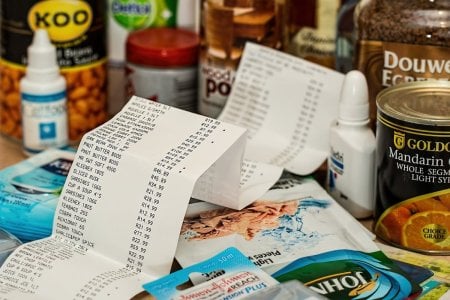Revealed: The Australians hit hardest by the skyrocketing cost of living crisis!
- Replies 12
It’s no secret Australians are being hit hard by the cost of living, and it’s those who are living on a low income are feeling it the most. For them, even everyday purchases can cost a fortune.
According to recent reports, this dire situation is underscored by the troubling fact that as of 2023, nearly three million Australians are currently living in poverty.
On Tuesday, August 12, Anglicare Australia released The Poverty Premium report, which identified transport, energy and loans as the areas where low-income Aussies suffer the most.
The report revealed that those earning less are disadvantaged in different ways, such as paying more for essentials, compared to those more advantaged.
So how do these financial constraints manifest in daily life?
The report said that if people can't afford to buy bulk groceries at once or get a car that uses less gas, they end up paying more in the long run.
Not only that, they’re also paying more to travel if they’re living far away from work and not having access to the best credit deals.
These extra costs combined push people into unmanageable debt spirals—leading to people skipping meals, missing medical appointments, and avoiding getting insurance—all of which worsen their financial and overall well-being.
Anglicare Australia executive director Kasy Chambers said their report is a call to action to stop the additional weight being placed on those already most financially stressed.
'Our research shows that it costs more to be poor,' she said. 'These extra costs are a poverty premium, punishing people who are already earning less.'
The report found people on low incomes are paying 10 per cent more on fuel for less efficient cars, a staggering 142 per cent more on phone data, 45 per cent more on credit and loans, and 93 per cent more on groceries.
'These numbers show us that Australians doing it tough need real action and real leadership,' Chambers said.
'That means raising the rate of Centrelink payments, making the minimum wage a living wage, and creating cheaper insurance and energy options for people who need them.'

This report highlights that the increasing cost of living is not just a statistical issue; it deeply affects many Australians, including members of our community.
How are you coping with the cost of living? Do you know of any support services that could make a difference in someone's life?
Please share your thoughts and valuable resources in the comments below. Your input could make a key difference for someone in our community.
According to recent reports, this dire situation is underscored by the troubling fact that as of 2023, nearly three million Australians are currently living in poverty.
On Tuesday, August 12, Anglicare Australia released The Poverty Premium report, which identified transport, energy and loans as the areas where low-income Aussies suffer the most.
The report revealed that those earning less are disadvantaged in different ways, such as paying more for essentials, compared to those more advantaged.
So how do these financial constraints manifest in daily life?
The report said that if people can't afford to buy bulk groceries at once or get a car that uses less gas, they end up paying more in the long run.
Not only that, they’re also paying more to travel if they’re living far away from work and not having access to the best credit deals.
These extra costs combined push people into unmanageable debt spirals—leading to people skipping meals, missing medical appointments, and avoiding getting insurance—all of which worsen their financial and overall well-being.
Anglicare Australia executive director Kasy Chambers said their report is a call to action to stop the additional weight being placed on those already most financially stressed.
'Our research shows that it costs more to be poor,' she said. 'These extra costs are a poverty premium, punishing people who are already earning less.'
The report found people on low incomes are paying 10 per cent more on fuel for less efficient cars, a staggering 142 per cent more on phone data, 45 per cent more on credit and loans, and 93 per cent more on groceries.
'These numbers show us that Australians doing it tough need real action and real leadership,' Chambers said.
'That means raising the rate of Centrelink payments, making the minimum wage a living wage, and creating cheaper insurance and energy options for people who need them.'
Key Takeaways
- A new report from Anglicare Australia reveals people on lower incomes often face higher living costs.
- The report, titled The Poverty Premium, indicates that these individuals pay more for transport, energy, loans, and are often forced to reside further from work.
- The report found that those on low incomes spend significantly more on basics such as fuel, credit, groceries and phone data due to what is defined as a 'poverty premium'.
- The report calls for actions such as raising the rate of Centrelink payments, turning the minimum wage into a living wage, and generating cheaper insurance and energy options for those who need them.
This report highlights that the increasing cost of living is not just a statistical issue; it deeply affects many Australians, including members of our community.
How are you coping with the cost of living? Do you know of any support services that could make a difference in someone's life?
Please share your thoughts and valuable resources in the comments below. Your input could make a key difference for someone in our community.








